When one thinks of the horror figure of “The Mummy” the image of a shambling figure wrapped in bandages, lurching slowly towards you, is what normally comes to mind - your basic horror monster only easier to escape from - but that wasn’t the case at all back in 1932 when legendary actor Boris Karloff traded in bolts in his neck for Egyptian cotton, because in this film the public was treated to a truly menacing character, one with his own dark agenda.
Riding high on the success of James Whale’s Frankenstein, Universal Pictures were quick to get their latest star Boris Karloff into another horror film as quickly as possible, sequels were yet to become the next big thing so Carl Laemmle Jr. commissioned story editor Richard Schayer to find a novel that was the based on Egyptian-themed horror, hopefully, to capitalize on the public’s interest in Tutankhamun's tomb and the Curse of the Pharaohs, but Thayer found none and it became up to screenwriter John L. Balderston to find the core of what would become The Mummy. What horror fans today may find surprising is the complete lack of the title character shambling around in full Mummy regalia, Boris Karloff’s onscreen time as “The Mummy” is barely a couple of minutes and he’s never seen walking let alone shambling, but the awakening of the mummy, the doomed high priest named Imhotep (Boris Karloff), by a team from the British Museum, led by Sir Joseph Whemple (Arthur Byron) and aided by Egyptian occult expert Dr. Muller (Edward Van Sloan), and it is a truly terrifying moment, so terrifying that the one witness to the event was driven mad.
I could see this encounter giving anyone pause.
The movie then jumps ahead ten years to introduce us to the film’s romantic lead in the form of Sir Joseph’s son Frank (David Manners), who has followed in his father’s footsteps with a career in archeology, despite his father’s refusal to return to Egypt after the events of the film’s prologue. We find Frank and his partner Professor Pearson (Leonard Mudie) planning to call the whole expedition off, having found nothing but a few Egyptian trinkets, but before you can say “Get me the Scroll of Thoth” a mysterious Egyptian historian named Ardeth Bey (Boris Karloff) informs them that he has a good idea as to where to find the tomb of the princess Anck-su-namun. The tomb is found, fully intact and loaded with treasures, but the enigmatic Ardeth Bey disappears only to make an appearance later at the Anck-su-namun exhibit at the Cairo Museum. where he seems strangely interested in the mummified remains of the Egyptian princess, much to the consternation of Sir Joseph and his son.
“Now see here, don’t give me any of that lost reincarnated love stuff.”
An astute viewer should have no problem noticing certain similarities to Tod Browning’s Dracula, which also had John L. Balderston as a screenwriter, as we not only have an undead villain using mind control to enthrall a beautiful woman, and in this case, it is Helen Grosvenor (Zita Johann) a half-Egyptian woman who turns out to be the reincarnated Princess Anck-su-namun, and Edward Van Sloan’s portrayal of Egyptian occult expert Doctor Muller is only one step away from his depiction of Doctor Van Helsing in Dracula. Ardeth Bey wants to turn Helen into a living dead, like himself, which is exactly what Dracula had planned for poor Mina Seward. Now, the biggest difference is the fact that neither Dr. Muller nor the film’s male protagonist, the excessively bland Frank Whemple, saves the day because in the end Helen is actually spared her sacrificial fate by the intervention of goddess Isis, whose statue strikes down Ardeth Bey and turns him to dust.
A very literal Deus ex machina, if you will.
Stray Observations:
• The placard in the Cairo Museum for the exhibit of Princess Anck-su-namun states that “All objects in this room are from her unplundered tomb” it should have actually stated, “Unplundered until the British got their grubby hands on it.”
• That Ardeth Bey can command Sir Joseph’s Nubian servant simply because he is a descendant of a race that was once enslaved by the Egyptians is just a tad racist.
• Ardeth Bey has a scrying pool so that he can spy on Sir Joseph and locate the Scroll of Toth, a device dating back to ancient Egypt and Persia, a pool that provides hi-def pictures and even utilizes modern editing techniques.
• The villainous Mummy predates Christianity by a considerable amount of time, thus a Christian cross won’t work as it would with vampires, so Dr. Muller provides our hero with an amulet of Isis for protection against the dark forces.
• The idea of ancient evil finding a “modern” woman who turns out to be his reincarnated love was later adopted by Francis Ford Coppola for his take on Bram Stoker’s Dracula.
“Did I mention I crossed oceans of time for you?”
While the film’s plot has more than a few passing similarities to Tod Browning’s Dracula one can’t help but admire the work Boris Karloff put into this character to pull off what was both a sympathetic and terrifying antagonist, having been mummified alive for trying to revive his dead love he kills everyone who gets in the way of his bringing back his lost love, which just so happens to involve the brutal murder of her current incarnation. True love is a bit dark and nasty here. Then there is the impressive make-up provided by Universal’s monster maker Jack Pierce whose work really shines here and even though Karloff in full Mummy make-up is all but too brief the look of Ardeth Bey’s dried papyrus skin is even more effective in my opinion and downright frightening at times.
It should be noted that those images of mummies shambling across the moors actually stem from the many sequels that followed, none of which include the character of Imhotep, nor do those sequels star Boris Karloff and as fun and entertaining as those follow-up films were they never quite captured the horror or pathos of the original film, one that was expertly helmed by Dracula cinematographer turned director Karl Freund. Universal’s The Mummy stands out as one of the more interesting “tragic love stories” in the Universal Monster Canon, with Karloff once again being the most charismatic and interesting character on screen and it’s a shame that he never returned to the role, surely being turned to dust couldn’t possibly stop the likes of Karloff the Uncanny.
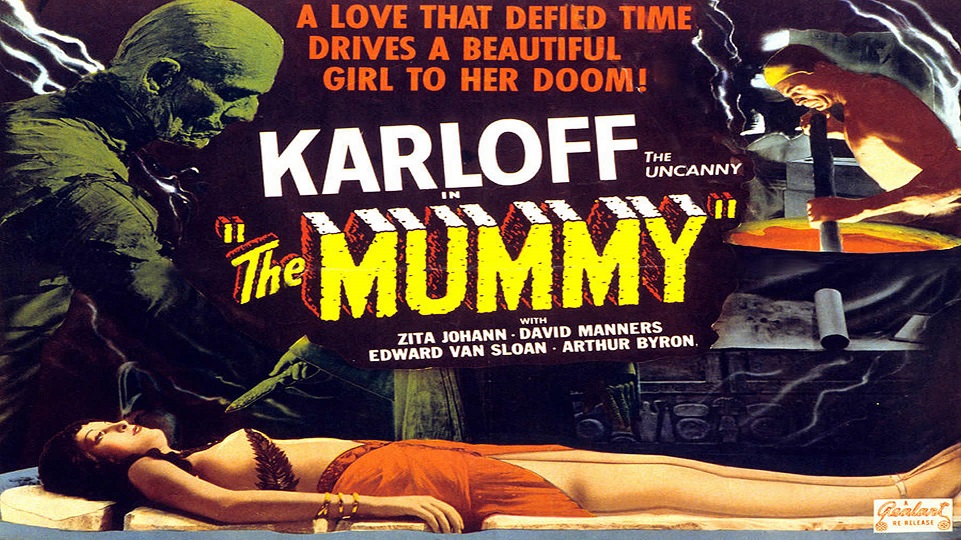
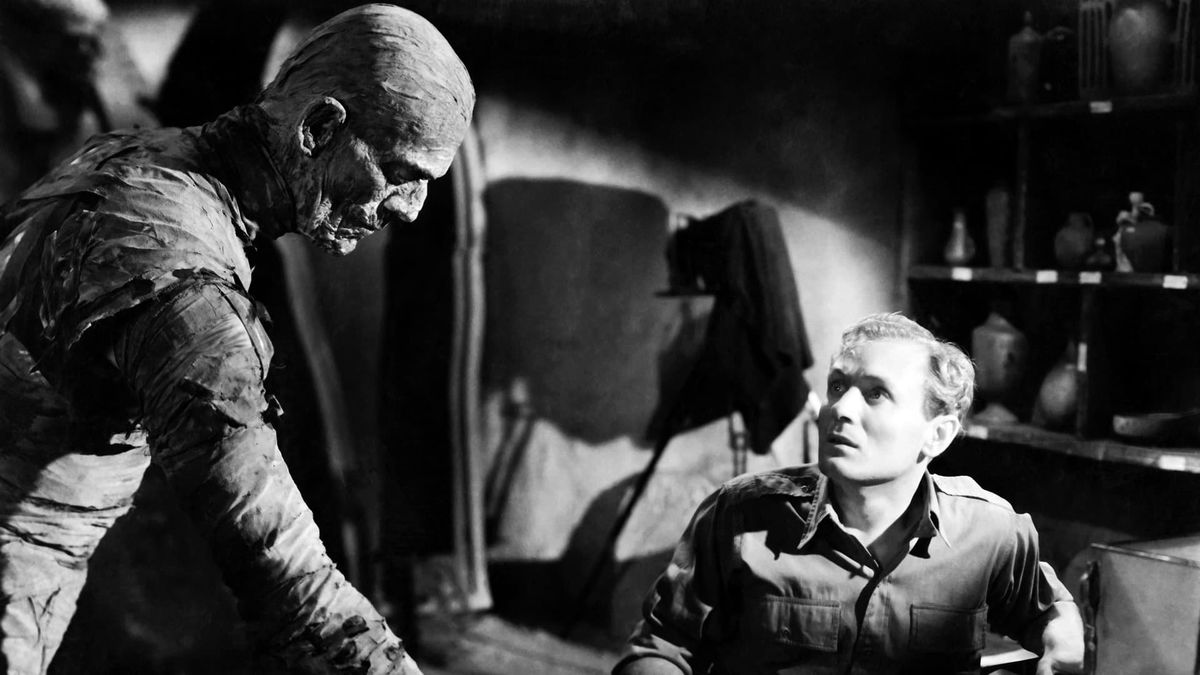
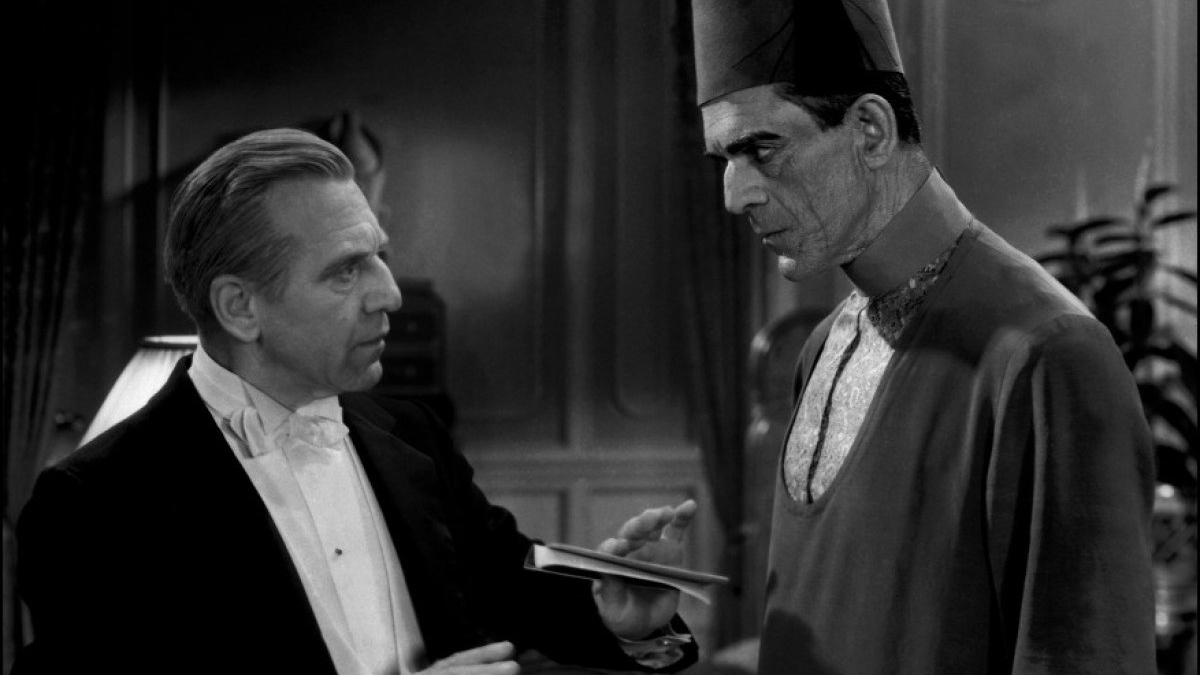
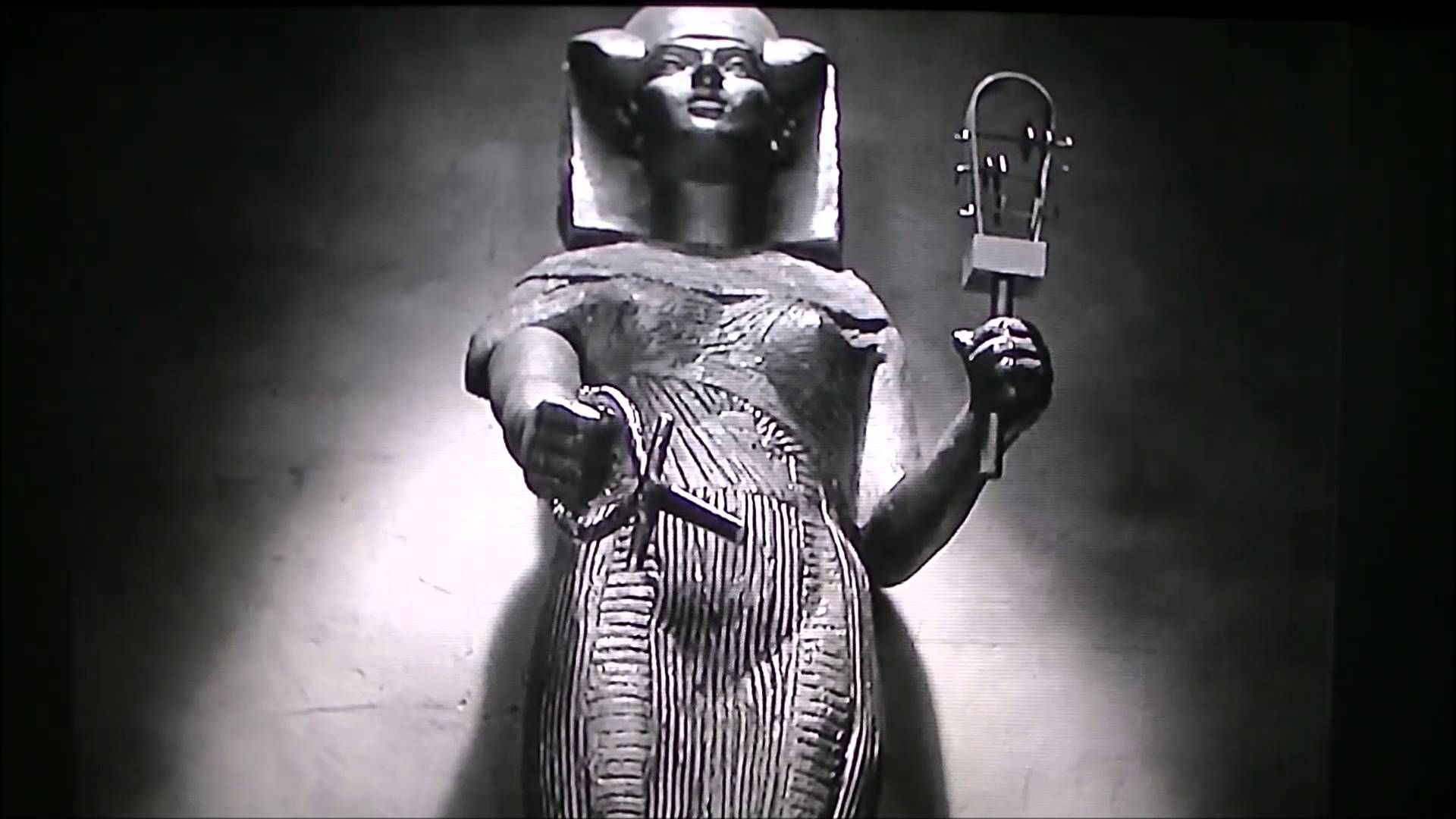
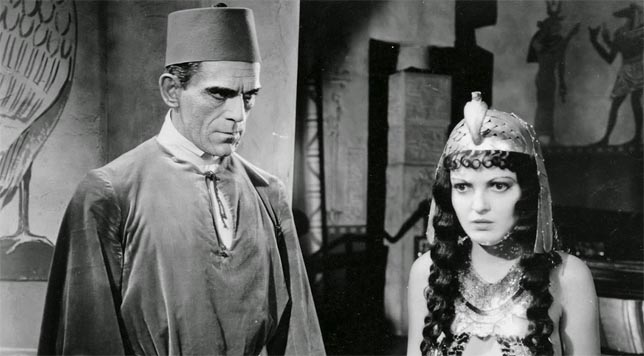
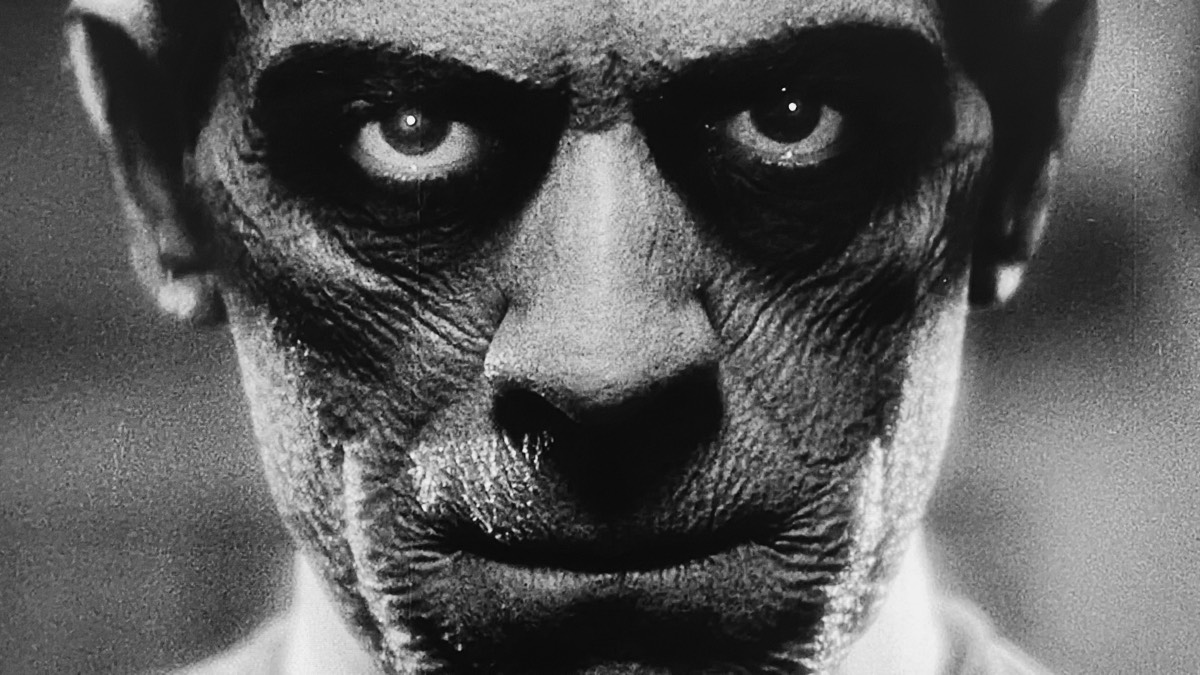

1 comment:
Cool page bro. Movies are awesome .. especially these classic older ones. Thanx for the pics !!!
Post a Comment